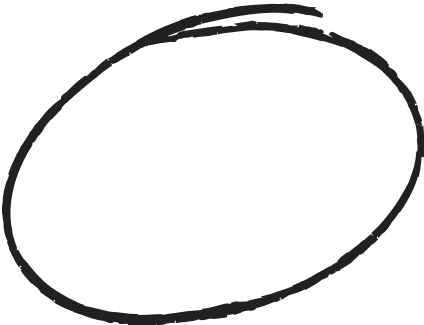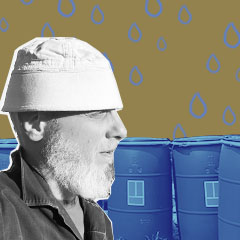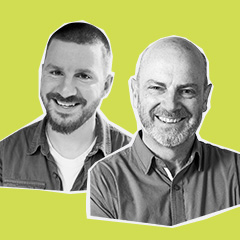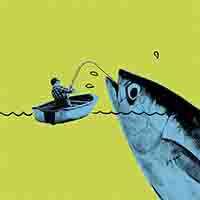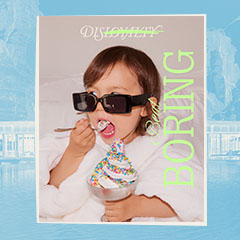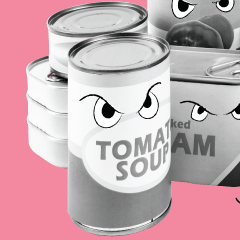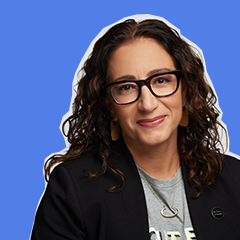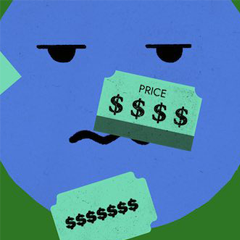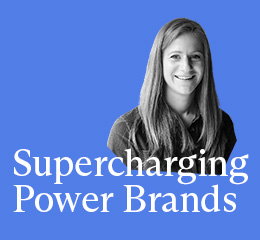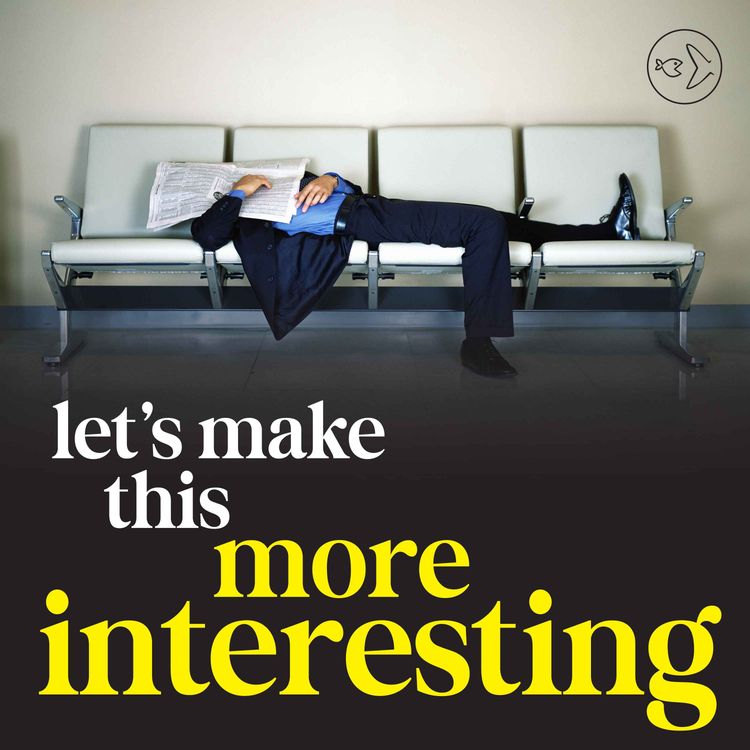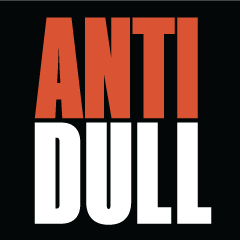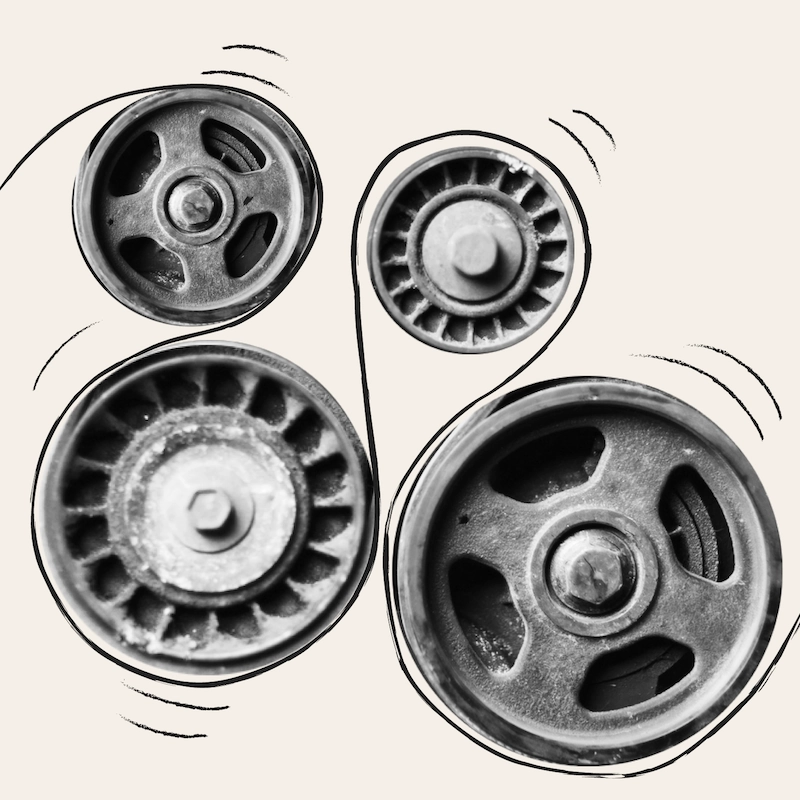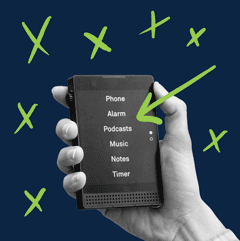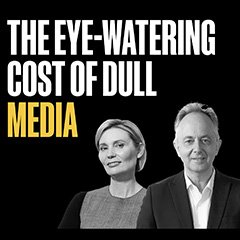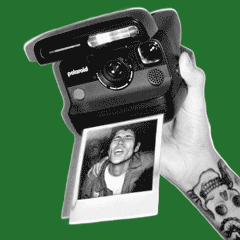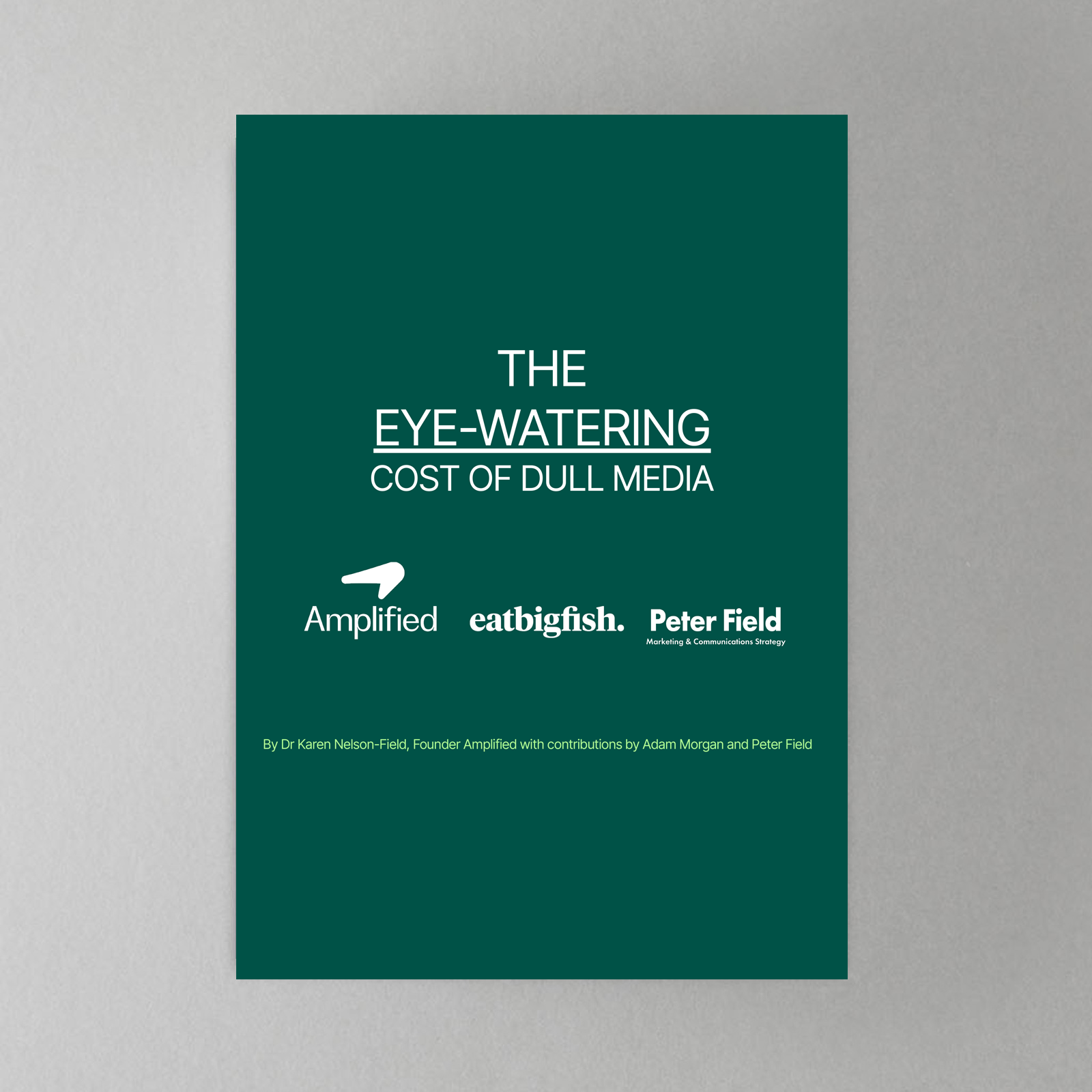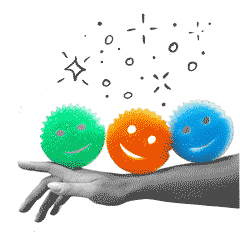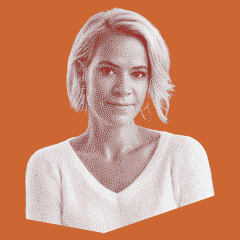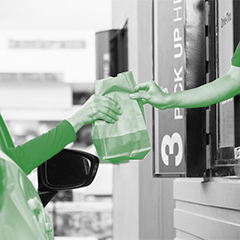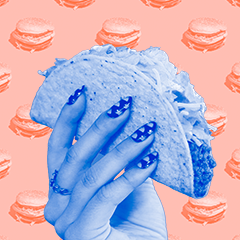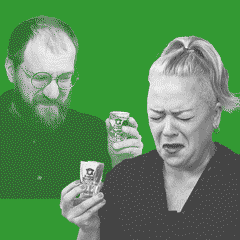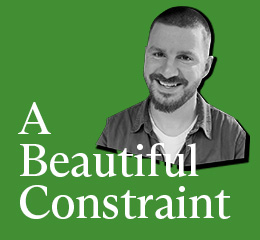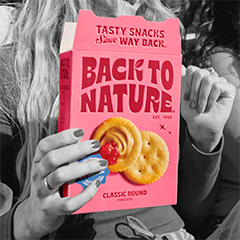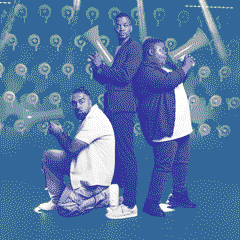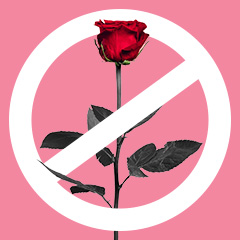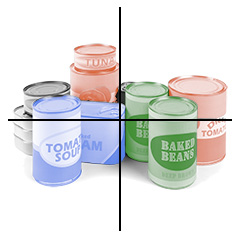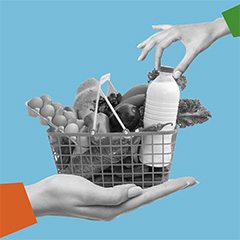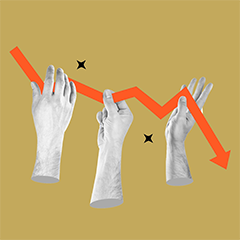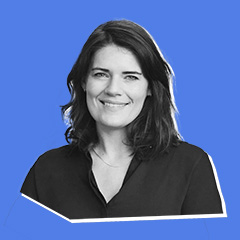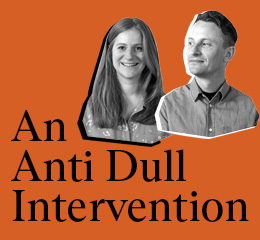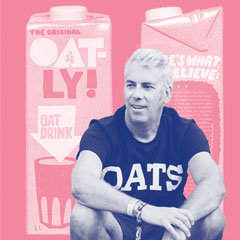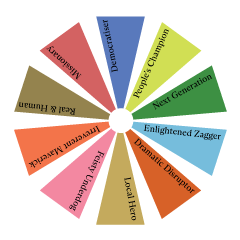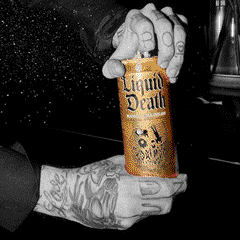Bobbie: “We deserve a product that's speaking to us, not to our three-week-old baby.”
Bobbie: “We deserve a product that's speaking to us, not to our three-week-old baby.”
Cutesy giraffes, baby elephants, and ABC wooden blocks all cue ‘baby product’ but babies can’t buy things (at least not on purpose, though the amount of babies who can use an iPhone is somewhat worrying if you have 1-click purchasing enabled), so why is it that classic baby formulas use these cues when speaking to parents, the real decision makers? This was the question that Challenger Brand Bobbie asked. A European-style infant formula but manufactured in the USA, Bobbie’s goal is to change the baby formula category with simple, higher quality ingredients and be a force for good when it comes to improving the lives of American parents and babies. And they do it all in a fun and grown-up way that talks directly to their audience (parents). To find out how the brand is challenging their category, Sarah McAllister spoke with Kim Chappell their Chief Brand Officer.

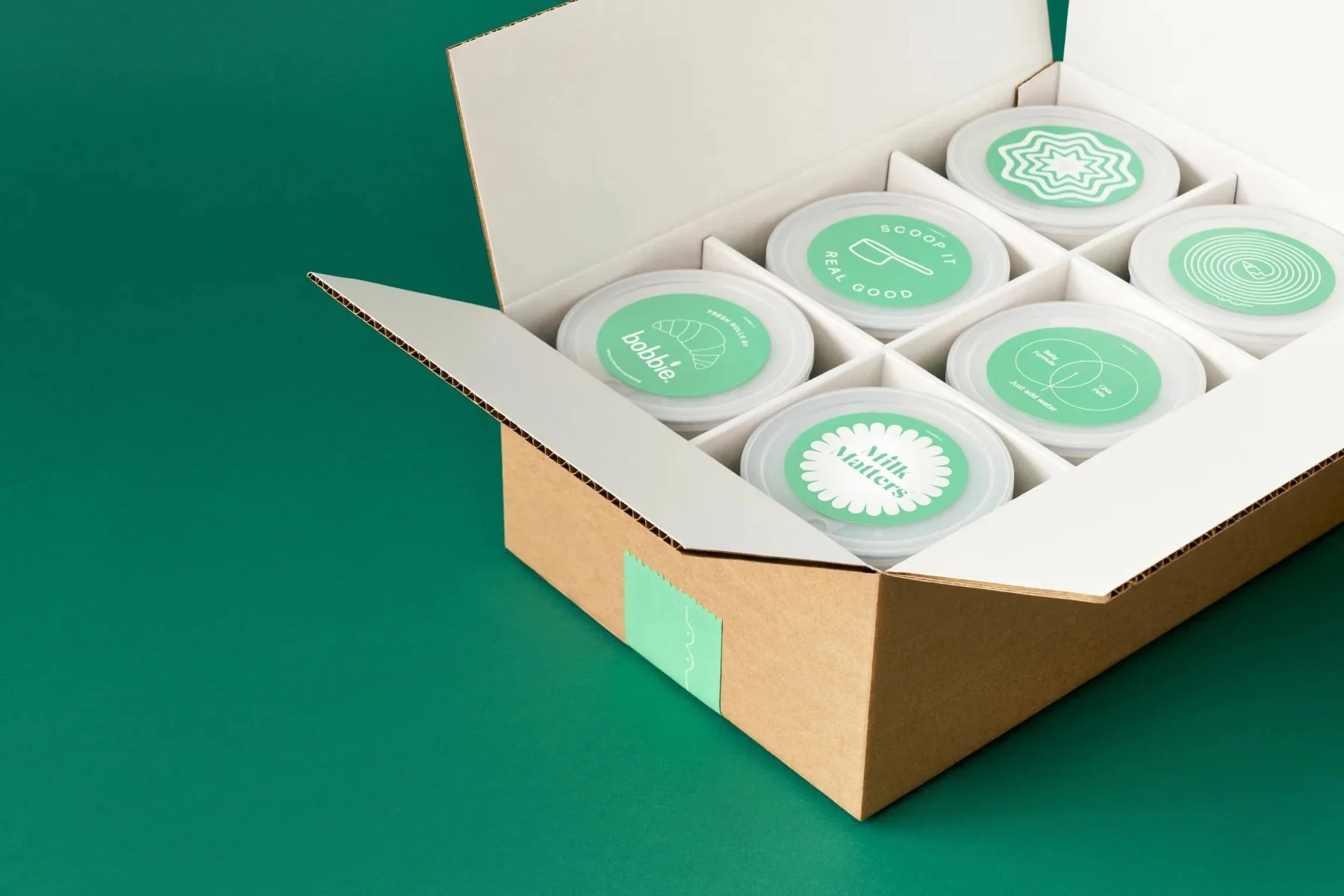

Challengers have ambitions that outweigh their resources. What’s the ambition for Bobbie that drives everything you do?
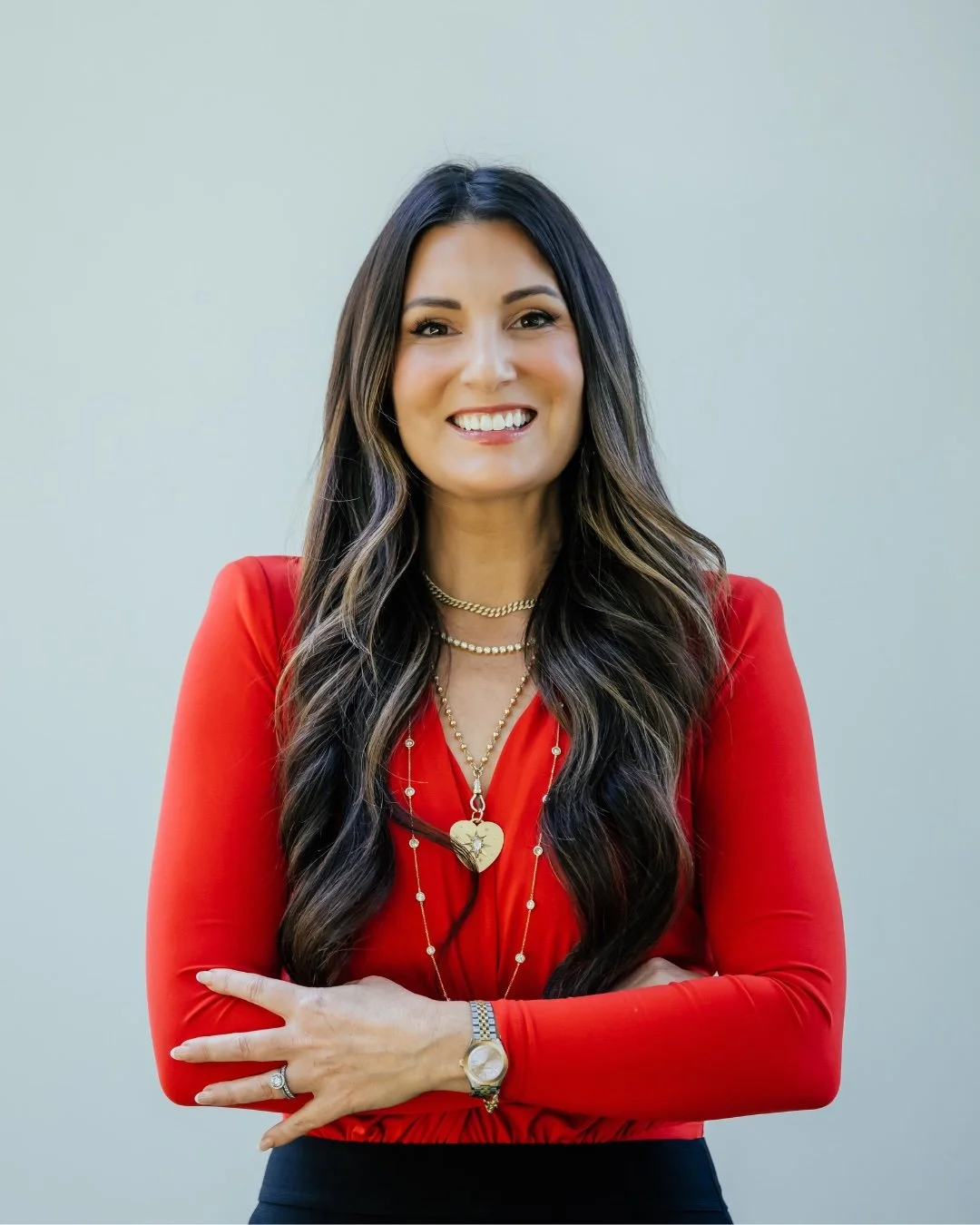
Our ambition is to uplevel infant formula for American families – full stop. And to allow every family to have access to high quality formulas. We are not only doing the work, we’re advocating to level up our entire industry pushing for nutritional standards to be upleveled. The US hasn't significantly changed their nutritional standards since the 1980s and we know that science has evolved on basic things like including DHA in infant formula. I think ultimately, our goal is to be partners with policy makers and to figure out how we can innovate faster on behalf of all American parents. How do we become the global standard for infant formula, so that other countries want to import US formula, not the other way around?
Challengers (by definition) challenge something – what assumptions in the marketplace or wider society does Bobbie challenge?
There's an assumption that the formula market is a free market, and it's not in America. 50% of the parents in this country are on WIC, which is our women and infant children benefits program. This program currently props up the two major legacy players in this industry and allows them to continue to serve half of the country, even if those parents wouldn't have necessarily opted for that brand of formula. The industry would look incredibly different, and innovation would have happened at the pace of the rest of CPG, if it were a free market and 100% of parents were able to put their money behind brands that they want to support. And I believe all parents deserve that right, whether you are on WIC or paying out of pocket.
Secondly, there's an assumption in this country that breastfeeding is going to be easy, and it should be beautiful, and it should just happen. Anybody who's been through that experience, knows that that's most often not the case. We need to do better for mothers to set them up for success– things like expanded coverage and access to lactation support, especially in those early months, and passing federal paid leave to allow new mothers the time and space to make breastfeeding work. Our current set up in this country does not fundamentally support mothers. That is another thing that we get really loud about at Bobbie, not only because we are a team of moms who are living and breathing that experience, but every single person in our community is living and breathing that same experience. So how can we galvanize our community around some of these shared issues, such as passing paid federal leave? We sit here and wonder why breastfeeding rates aren't going up, but the two have a direct correlation. Breastfeeding takes time. It takes resourcing. It takes focus and energy, and we should give moms that time to be successful. And if we're not, then we certainly shouldn't be placing any judgment or shame on how they choose to feed their babies, which is obviously core to the Bobbie mission.
Tell us about your customer. Who is Bobbie speaking to and how do you make sure they hear you?
Typically, we are speaking to a mom, and she's the friend that likes to research everything. She’s deep in the spreadsheet and she wants the highest quality for her baby. She wants to double click on ingredients. She wants to support a brand that has a purpose – it's not just transactional. She wants to be surprised and delighted, and she wants a best-in-class digital experience. She's used to getting her monthly deliveries for whatever she needs in her life. She just cares deeply about what's in her baby's bottle. It's not an afterthought. It's a very intentional decision. So, we try to meet her in that moment and kind of lift the curtain and say, here's what's in your formula. Here are the benefits of that ingredient. Here's where we sourced it. Here's why we feed it to our own babies and build a layer of trust and transparency with them in a way that I don't think the industry as a whole has been particularly good at.

So, we come in and really try to meet our parents where they're at and not feel like this is a game of dark arts and shadows, but actually, here's how it comes to be, and here's why we're priced the way we're priced, and here's the cow that ate this organic grass in New Zealand that's feeding your baby. Here’s why USDA Organic matters, down to the number of pesticides allowed to be used (0 compared to conventional formulas (hundreds). There's a lot of beautiful and rich storytelling that can go around that, and those little stories and all of the ways in which you can tell people what's happening behind the scenes, builds trust with your customer. This is a product where you need to feel like you can trust this company, because this is going to feed your baby. There's nothing more precious to you as a new parent than: What is your baby eating? Is your baby growing? Is your baby spitting up? Is your baby pooping? It is the centre of your universe for so many months. We recognize that, and we try to educate and meet them through that whole journey.
It's also about how you talk to the parent. What was so perplexing to me coming into this job, was that when we looked at the category, at the cans of formula and the messaging, there were little giraffes and teddy bears and ABC blocks. And I'm like, the baby can't read, okay? The baby doesn't know what's going on. The baby is sitting in a car seat, sleeping while you're purchasing this formula. And I just felt like it was really cheesy, and undermining to women in a way. They're smart, we're smart. We know what we want. We deserve a product that's speaking to us, not to our three-week-old baby. So, I just felt like there was a really good opportunity to actually just talk to the parent. And how do we talk to each other? How do you talk to your friend in your group text? We have a lid sticker that gets a lot of shares that reads “You’re the sh*t.” And it’s intentionally a positive affirmation for whoever is opening the can, speaking directly to that person, not the baby. And that's how we talk to our customer, because there's a level of casualness, friendliness, but also respect – you're not an idiot and we're going to just talk to you like you're one of our friends. That has really been our tone of voice since day one.
How do you maintain the strong Bobbie brand in the content that you put out into the world, particularly when you are speaking more casually?
Sometimes I'll read something that comes through and if there's anything that gives me the ick or feels so cringe, or cheesy, then it just doesn’t feel Bobbie or it's just not what we call ‘Bobbified.’ We really try not to be cheesy, but just to have a little fun and playfulness and talk to our customer in the way that we would want to be spoken to. And that is the beauty, I think, of being a mom-founded and led company, we are living and breathing the same experience as our customers.
Everything that we have done since day one has been so customer centric. We have over-indexed on non-scalable things like you wouldn't believe. And we still do that to this day. So how do we make sure that every customer has a high touch experience? If they DM us, we get back to them instantly with a human, not AI, messaging with them. We pull them into zooms for feedback with our CEO. We surprise and delight and send them gifts in their monthly subscription. We have Ubered formula to a mom stuck at LaGuardia who ran out because her flight was delayed. All of these little moments allow us to continue to treat every mom like we would want to be treated or treat every mom like we would treat one of our celebrity parents.
There's a level of compassion and care in how we show up as real humans across every touch point. There are all of these companies over-indexing on AI, but it just makes the human touch point so much more valuable. And in a space where you're a mom, you don't want to talk to a freaking robot, you want to talk to a mom who's lived it and breathed it, so our customer success team is all real people that answer the phones and reply to texts. I just think that's been a really, really big part of how we've built a beloved brand. It’s that people walk away feeling like they've had this really lovely experience with Bobbie. They felt like they understand our values. We've asked them to take action with us. They feel like they've done more than just buy powdered milk, and then we leave them feeling that they will always recommend us because we helped them accomplish one of the most important things in the first year of life, nourish and feed their new baby. The phrase that we've heard used by one of our customers was that Bobbie offered a layer of “invisible support.” She told us, ‘I always felt like I had a layer of invisible support with your brand.’ That was really beautiful to me.
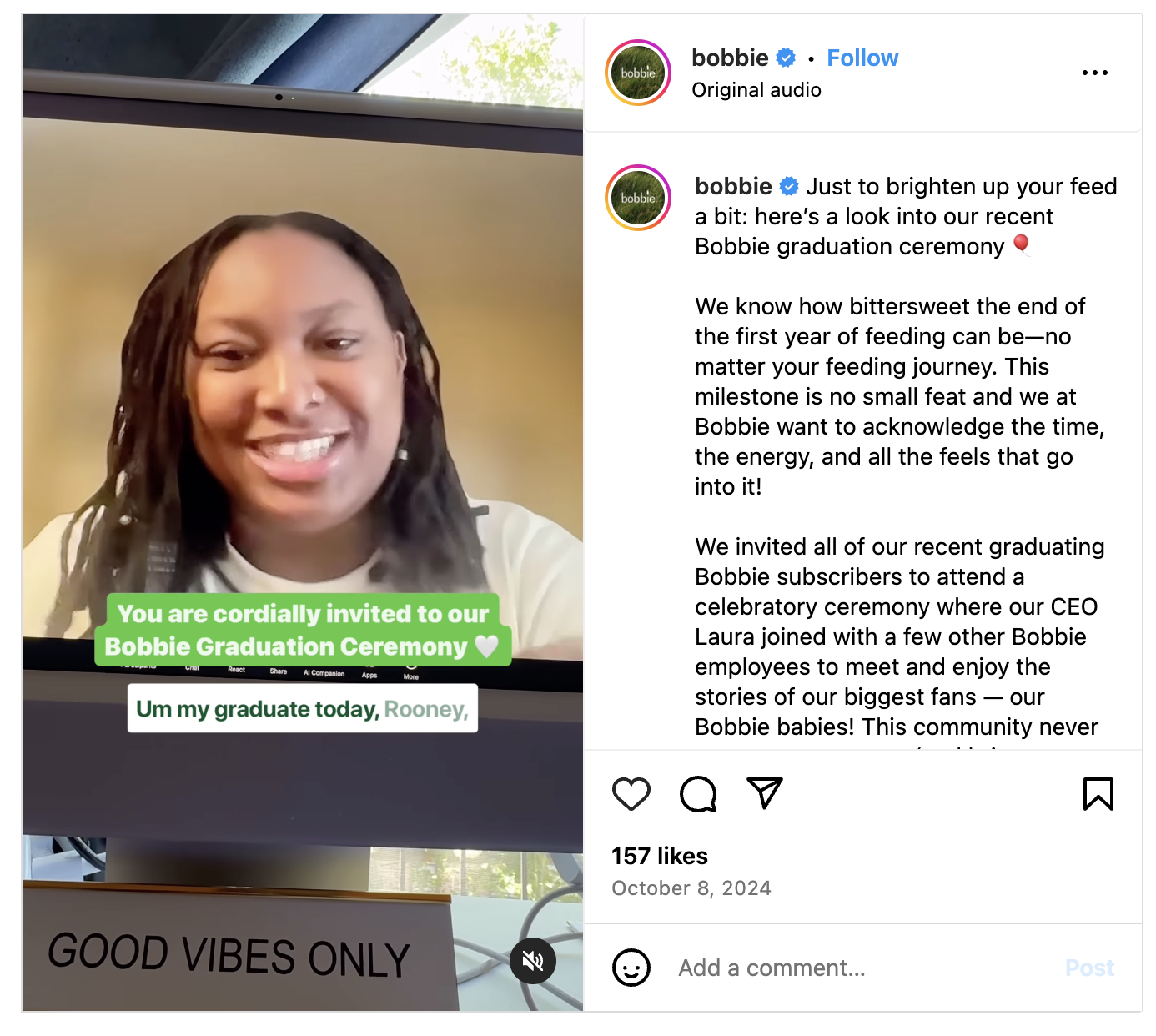
It's how you think about the typical things, the typical touch points, and how do you reimagine them for a better experience? For us that was when people were canceling their subscription. And you know, any direct-to-consumer business is like, please please don't cancel. They'll bury the button and make it so hard to find, because they don't want you to be able to cancel. But what we realized was, okay, this is different for us, because this person is canceling because their baby is now a one year old and no longer needs formula. It actually means that it's a celebration, and they're graduating off formula and they're headed into the next stage of parenthood. So, we created a whole graduation experience where you go to click Cancel, which is easy to find, you graduate, and you get your whole ‘Spotify Wrapped’ experience of your first year of feeding. It’s how many bottles you made based off of how many cans you ordered, and how many diapers you changed, etc. You get a graduation diploma, and then we invite you to join a graduation ceremony with our CEO, Laura, which we do once a month. It's such a beautiful way to celebrate the shared experience of having gotten your baby to age one. We ask them to put their cameras on because we want to see their faces. And it's this beautiful collage of parents from all over the country celebrating the same moment. We hope that is a finale experience that allows them to go and be an evangelist for the brand. And is that hugely scalable? I don't know, but it's a great moment. We share it on social. We share it in our marketing. We talk about what it means to be a Bobbie grad, so then it becomes a content engine for us as well.
You’ve had some incredible ads over the last couple years, featuring mega stars like Ashley Graham, Naomi Osaka and most recently influencer and chef Molly Baz. Can you tell us about how you came to be working with Molly?
I used to work in news and journalism, and I worked in a 24-hour cycle of content, every single day for 10 years. And I really think it shaped this muscle in me as a marketing leader of like, there is no deadline too tight. Everything can get done. It's the level of perfection that you're seeking that will get in your way. If you're doing a $10 million Super Bowl ad, of course, you should take the time to make sure that it's perfect, but sometimes a sprint and getting everybody running in the same direction over a two-week period is the most efficient way to continue to deliver and have a cadence of content coming out the door. There's a constant reshuffling of the pile of prioritization. I call it ‘breaking news’, and if we've got breaking news and we need to optimize for something that came inbound or fell in our lap, but we're technically too busy to take on another project – well, let's move one over, because we're not going to miss the opportunity. That was the situation with Molly Baz, where we found out she was combo feeding and using Bobbie.
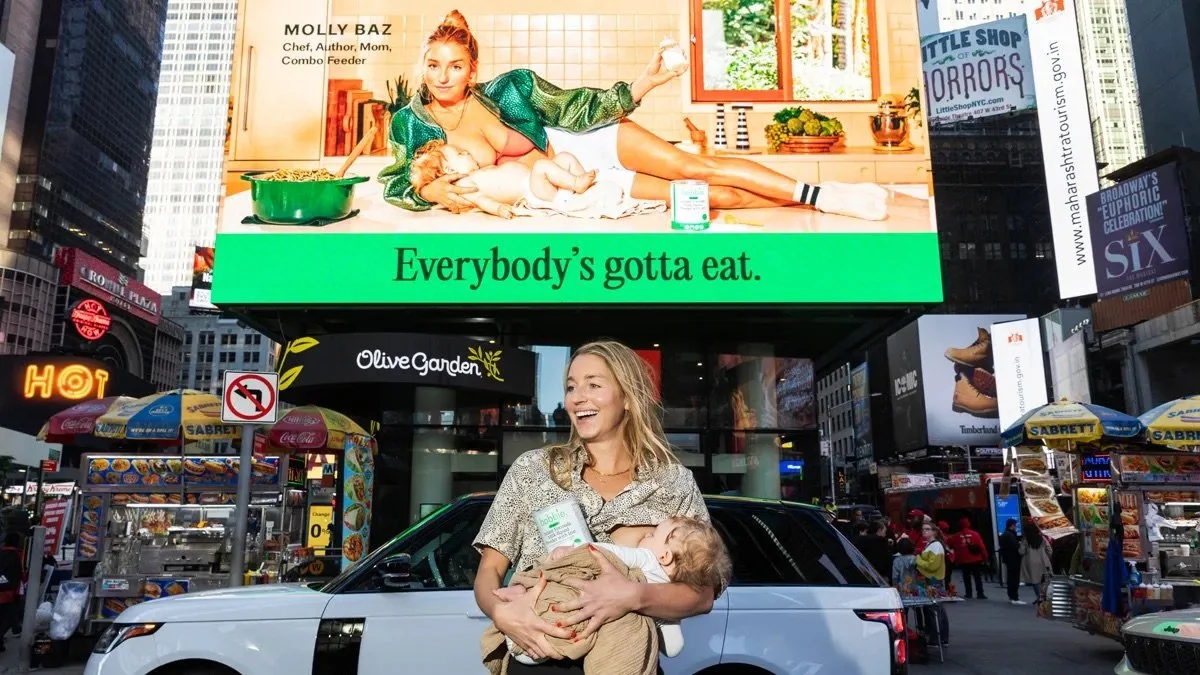
She had gotten her billboard with another brand in the maternal space (in Times Square) taken down because the image of her pregnant belly was deemed inappropriate in May 2024 and so, she had become a bit of a poster child for women's bodies being critiqued by the media. So, when we found out that she was combo feeding with breastmilk and Bobbie, we were like, well, guess we're going to have to put her back on the billboard. We did so not to show her bottle feeding, but to show her breastfeeding her baby, which was what she was doing, while also supplementing with Bobbie. That is a narrative that we have been talking about since the earliest days of this company, based on the research that 70% of parents are combo feeding. Society wants to put us in these feeding wars of breast versus formula, and we don't subscribe to it. It's not the reality. Our job is to amplify the reality of our customers. This is their story. So, we decided to put her breastfeeding on a billboard. She was the first breastfeeding mom on a billboard in Times Square, and it was in the same billboard location where she had been removed before. Justice for moms everywhere!
Getting it up though was a sprint, because basically we found out on a Monday that this was happening, and we're like, okay, can we do this? And then we had a two-week window to pull it off because she had all these projects stacked, and she said that it was either in the next two weeks or it was going to be in 2025. So, it was a parallel job of calling the billboard company, booking a shooter, and trying to lock down a date for her wardrobe and styling. But our creative director had just found out she was pregnant with twins, and she was high risk, so she couldn't go to the shoot. So, we patched together some Bobbie team members to go pull off the shoot in California, and our CD was directing on Zoom, pregnant with twins saying, “Okay, now, lay down this way.” It was just a really beautiful moment. And Molly's campaign was an awesome moment for the brand to show where our values lie – in supporting every feeding journey. We saw a lift in traffic to site and a ton of earned media with her stories and her ads around combo feeding. It was just a reminder that sometimes it's worth it, and you have to roll the dice. It's not always going to be perfect, and it's not always going to be the next big winning campaign, but when you have those opportunities, you have to just go for them. It's so easy in marketing to get bogged down by process and calendars and cross functional work streams and all these things. And I think you have to leave space and room for just the impromptu creativity and the joy and the momentum that can come from a really fun opportunity.

Challengers have ambitions that outweigh their resources. What’s the ambition for Bobbie that drives everything you do?

Our ambition is to uplevel infant formula for American families – full stop. And to allow every family to have access to high quality formulas. We are not only doing the work, we’re advocating to level up our entire industry pushing for nutritional standards to be upleveled. The US hasn't significantly changed their nutritional standards since the 1980s and we know that science has evolved on basic things like including DHA in infant formula. I think ultimately, our goal is to be partners with policy makers and to figure out how we can innovate faster on behalf of all American parents. How do we become the global standard for infant formula, so that other countries want to import US formula, not the other way around?
Challengers (by definition) challenge something – what assumptions in the marketplace or wider society does Bobbie challenge?
There's an assumption that the formula market is a free market, and it's not in America. 50% of the parents in this country are on WIC, which is our women and infant children benefits program. This program currently props up the two major legacy players in this industry and allows them to continue to serve half of the country, even if those parents wouldn't have necessarily opted for that brand of formula. The industry would look incredibly different, and innovation would have happened at the pace of the rest of CPG, if it were a free market and 100% of parents were able to put their money behind brands that they want to support. And I believe all parents deserve that right, whether you are on WIC or paying out of pocket.
Secondly, there's an assumption in this country that breastfeeding is going to be easy, and it should be beautiful, and it should just happen. Anybody who's been through that experience, knows that that's most often not the case. We need to do better for mothers to set them up for success– things like expanded coverage and access to lactation support, especially in those early months, and passing federal paid leave to allow new mothers the time and space to make breastfeeding work. Our current set up in this country does not fundamentally support mothers. That is another thing that we get really loud about at Bobbie, not only because we are a team of moms who are living and breathing that experience, but every single person in our community is living and breathing that same experience. So how can we galvanize our community around some of these shared issues, such as passing paid federal leave? We sit here and wonder why breastfeeding rates aren't going up, but the two have a direct correlation. Breastfeeding takes time. It takes resourcing. It takes focus and energy, and we should give moms that time to be successful. And if we're not, then we certainly shouldn't be placing any judgment or shame on how they choose to feed their babies, which is obviously core to the Bobbie mission.
Tell us about your customer. Who is Bobbie speaking to and how do you make sure they hear you?
Typically, we are speaking to a mom, and she's the friend that likes to research everything. She’s deep in the spreadsheet and she wants the highest quality for her baby. She wants to double click on ingredients. She wants to support a brand that has a purpose – it's not just transactional. She wants to be surprised and delighted, and she wants a best-in-class digital experience. She's used to getting her monthly deliveries for whatever she needs in her life. She just cares deeply about what's in her baby's bottle. It's not an afterthought. It's a very intentional decision. So, we try to meet her in that moment and kind of lift the curtain and say, here's what's in your formula. Here are the benefits of that ingredient. Here's where we sourced it. Here's why we feed it to our own babies and build a layer of trust and transparency with them in a way that I don't think the industry as a whole has been particularly good at.

So, we come in and really try to meet our parents where they're at and not feel like this is a game of dark arts and shadows, but actually, here's how it comes to be, and here's why we're priced the way we're priced, and here's the cow that ate this organic grass in New Zealand that's feeding your baby. Here’s why USDA Organic matters, down to the number of pesticides allowed to be used (0 compared to conventional formulas (hundreds). There's a lot of beautiful and rich storytelling that can go around that, and those little stories and all of the ways in which you can tell people what's happening behind the scenes, builds trust with your customer. This is a product where you need to feel like you can trust this company, because this is going to feed your baby. There's nothing more precious to you as a new parent than: What is your baby eating? Is your baby growing? Is your baby spitting up? Is your baby pooping? It is the centre of your universe for so many months. We recognize that, and we try to educate and meet them through that whole journey.
It's also about how you talk to the parent. What was so perplexing to me coming into this job, was that when we looked at the category, at the cans of formula and the messaging, there were little giraffes and teddy bears and ABC blocks. And I'm like, the baby can't read, okay? The baby doesn't know what's going on. The baby is sitting in a car seat, sleeping while you're purchasing this formula. And I just felt like it was really cheesy, and undermining to women in a way. They're smart, we're smart. We know what we want. We deserve a product that's speaking to us, not to our three-week-old baby. So, I just felt like there was a really good opportunity to actually just talk to the parent. And how do we talk to each other? How do you talk to your friend in your group text? We have a lid sticker that gets a lot of shares that reads “You’re the sh*t.” And it’s intentionally a positive affirmation for whoever is opening the can, speaking directly to that person, not the baby. And that's how we talk to our customer, because there's a level of casualness, friendliness, but also respect – you're not an idiot and we're going to just talk to you like you're one of our friends. That has really been our tone of voice since day one.
How do you maintain the strong Bobbie brand in the content that you put out into the world, particularly when you are speaking more casually?
Sometimes I'll read something that comes through and if there's anything that gives me the ick or feels so cringe, or cheesy, then it just doesn’t feel Bobbie or it's just not what we call ‘Bobbified.’ We really try not to be cheesy, but just to have a little fun and playfulness and talk to our customer in the way that we would want to be spoken to. And that is the beauty, I think, of being a mom-founded and led company, we are living and breathing the same experience as our customers.
Everything that we have done since day one has been so customer centric. We have over-indexed on non-scalable things like you wouldn't believe. And we still do that to this day. So how do we make sure that every customer has a high touch experience? If they DM us, we get back to them instantly with a human, not AI, messaging with them. We pull them into zooms for feedback with our CEO. We surprise and delight and send them gifts in their monthly subscription. We have Ubered formula to a mom stuck at LaGuardia who ran out because her flight was delayed. All of these little moments allow us to continue to treat every mom like we would want to be treated or treat every mom like we would treat one of our celebrity parents.
There's a level of compassion and care in how we show up as real humans across every touch point. There are all of these companies over-indexing on AI, but it just makes the human touch point so much more valuable. And in a space where you're a mom, you don't want to talk to a freaking robot, you want to talk to a mom who's lived it and breathed it, so our customer success team is all real people that answer the phones and reply to texts. I just think that's been a really, really big part of how we've built a beloved brand. It’s that people walk away feeling like they've had this really lovely experience with Bobbie. They felt like they understand our values. We've asked them to take action with us. They feel like they've done more than just buy powdered milk, and then we leave them feeling that they will always recommend us because we helped them accomplish one of the most important things in the first year of life, nourish and feed their new baby. The phrase that we've heard used by one of our customers was that Bobbie offered a layer of “invisible support.” She told us, ‘I always felt like I had a layer of invisible support with your brand.’ That was really beautiful to me.

It's how you think about the typical things, the typical touch points, and how do you reimagine them for a better experience? For us that was when people were canceling their subscription. And you know, any direct-to-consumer business is like, please please don't cancel. They'll bury the button and make it so hard to find, because they don't want you to be able to cancel. But what we realized was, okay, this is different for us, because this person is canceling because their baby is now a one year old and no longer needs formula. It actually means that it's a celebration, and they're graduating off formula and they're headed into the next stage of parenthood. So, we created a whole graduation experience where you go to click Cancel, which is easy to find, you graduate, and you get your whole ‘Spotify Wrapped’ experience of your first year of feeding. It’s how many bottles you made based off of how many cans you ordered, and how many diapers you changed, etc. You get a graduation diploma, and then we invite you to join a graduation ceremony with our CEO, Laura, which we do once a month. It's such a beautiful way to celebrate the shared experience of having gotten your baby to age one. We ask them to put their cameras on because we want to see their faces. And it's this beautiful collage of parents from all over the country celebrating the same moment. We hope that is a finale experience that allows them to go and be an evangelist for the brand. And is that hugely scalable? I don't know, but it's a great moment. We share it on social. We share it in our marketing. We talk about what it means to be a Bobbie grad, so then it becomes a content engine for us as well.
You’ve had some incredible ads over the last couple years, featuring mega stars like Ashley Graham, Naomi Osaka and most recently influencer and chef Molly Baz. Can you tell us about how you came to be working with Molly?
I used to work in news and journalism, and I worked in a 24-hour cycle of content, every single day for 10 years. And I really think it shaped this muscle in me as a marketing leader of like, there is no deadline too tight. Everything can get done. It's the level of perfection that you're seeking that will get in your way. If you're doing a $10 million Super Bowl ad, of course, you should take the time to make sure that it's perfect, but sometimes a sprint and getting everybody running in the same direction over a two-week period is the most efficient way to continue to deliver and have a cadence of content coming out the door. There's a constant reshuffling of the pile of prioritization. I call it ‘breaking news’, and if we've got breaking news and we need to optimize for something that came inbound or fell in our lap, but we're technically too busy to take on another project – well, let's move one over, because we're not going to miss the opportunity. That was the situation with Molly Baz, where we found out she was combo feeding and using Bobbie.

She had gotten her billboard with another brand in the maternal space (in Times Square) taken down because the image of her pregnant belly was deemed inappropriate in May 2024 and so, she had become a bit of a poster child for women's bodies being critiqued by the media. So, when we found out that she was combo feeding with breastmilk and Bobbie, we were like, well, guess we're going to have to put her back on the billboard. We did so not to show her bottle feeding, but to show her breastfeeding her baby, which was what she was doing, while also supplementing with Bobbie. That is a narrative that we have been talking about since the earliest days of this company, based on the research that 70% of parents are combo feeding. Society wants to put us in these feeding wars of breast versus formula, and we don't subscribe to it. It's not the reality. Our job is to amplify the reality of our customers. This is their story. So, we decided to put her breastfeeding on a billboard. She was the first breastfeeding mom on a billboard in Times Square, and it was in the same billboard location where she had been removed before. Justice for moms everywhere!
Getting it up though was a sprint, because basically we found out on a Monday that this was happening, and we're like, okay, can we do this? And then we had a two-week window to pull it off because she had all these projects stacked, and she said that it was either in the next two weeks or it was going to be in 2025. So, it was a parallel job of calling the billboard company, booking a shooter, and trying to lock down a date for her wardrobe and styling. But our creative director had just found out she was pregnant with twins, and she was high risk, so she couldn't go to the shoot. So, we patched together some Bobbie team members to go pull off the shoot in California, and our CD was directing on Zoom, pregnant with twins saying, “Okay, now, lay down this way.” It was just a really beautiful moment. And Molly's campaign was an awesome moment for the brand to show where our values lie – in supporting every feeding journey. We saw a lift in traffic to site and a ton of earned media with her stories and her ads around combo feeding. It was just a reminder that sometimes it's worth it, and you have to roll the dice. It's not always going to be perfect, and it's not always going to be the next big winning campaign, but when you have those opportunities, you have to just go for them. It's so easy in marketing to get bogged down by process and calendars and cross functional work streams and all these things. And I think you have to leave space and room for just the impromptu creativity and the joy and the momentum that can come from a really fun opportunity.

Putting the joy back into work (with Bruce Daisley)
If work takes up so much of our lives, and so much of work’s output is down to discretionary effort, how do we make work more engaging - as leaders of teams, and as workers ourselves?
Bruce Daisley has become a world expert on it. Previously the MD of YouTube in the UK, Bruce was the European Head of Twitter when he started exploring the meaning and future of work in a podcast, Eat Sleep Work Repeat. His first book, The Joy of Work, was a Sunday Times number one business bestseller and an FT Book of the Month. He is also the host of the hugely successful podcast ‘Eat Sleep Work Repeat’.
In this episode Adam and Bruce first discuss how to get rid of the things that suck the joy out of work, and then how to create a positive buzz in our engagement, as an individual and as a team.
They talk about:
- What the really big disruption in work has been (and it’s not wfh)
- The essential foundations for making any impact whatsoever on engagement in a culture
- The two key indicators of real engagement at work
- Why idle time is so important
- The real enemy of productivity in an organisation
- The power of Positive Affect
- The surprising importance of laughter
And why, when so much is known about how to drive up engagement at work, so little of that knowledge makes it into the leadership meetings of big organisations.
Listen to Eat Sleep Work Repeat:
Apple: https://podcasts.apple.com/gb/podcast/eat-sleep-work-repeat/id1190000968
Spotify: https://open.spotify.com/show/5KUW5Lu36O4nnfIFqIIUh4
Bruce's books:
The Joy of Work: 30 Ways to Fix Your Work Culture and Fall in Love with Your Job
Fortitude: The Myth of Resilience, and the Secrets of Inner Strength
__
Follow Adam on Linkedin: https://www.linkedin.com/in/adam-morgan-3a473a/
Let's Make This More Interesting is a podcast from eatbigfish. Thanks to our editor Ruth, our producer Travis, and to Tiny Podcasts.
Lessons, Frameworks, Power and Sex (a look back at Season 1)
In this bonus episode Adam summarises the key themes and learnings across all the guests from the first season, to make it useful and usable for you.
He breaks his conclusions into five sections:
1. The Cost of Dull and the Value of Interesting
2. The Four Kinds of Dull
3. Finding the right way to be interesting for you
4. Common themes and key ideas across all the guests
5. How to use it
Read the full transcript of the episode at The Challenger Project.
---------
Connect with Adam on LinkedIn: https://www.linkedin.com/in/adam-morgan-3a473a/
Follow eatbigfish on Linkedin and Instagram
With thanks to our editor Ruth and producer Ross.
Leading the world towards hope (with Gail Gallie)
We’re at an inflection point in how we engage people about the UN’s Sustainable Development Goals, Gail Gallie believes: we now need a completely new model – ‘The gloves are off’. Gail left a successful career in advertising and at the BBC to help set up Project Everyone with campaigner and film director Richard Curtis – their aim: to communicate the UN’s Sustainable Development Goals to everyone in the world in one week. 10 years later, she remains a relentless campaigner and innovator around communicating the SDGs, including the podcast she hosts with Loyiso Madinga, ‘An Idiot’s Guide to Saving The World’.
In this week's episode, Gail and Adam discuss:
- How the combination of a big ambition and a fierce time constraint drove breakthrough solutions for Project Everyone
- The new context: how the whole world has changed, and we need to move on from the old model now
- What this new model of impact campaigning should look like
- The role of surprise here, and how to get the most value from it
- Why the creative campaigning community now has to go for broke
- What it means to engage people in the conversation where they care when it comes to the SDGs, and in language they can relate to
And, in Richard Curtis’ words ‘What is the sound of hope we can make against the noise of despair?’
__
Follow Adam on Linkedin: https://www.linkedin.com/in/adam-morgan-3a473a/
Let's Make This More Interesting is a podcast from eatbigfish. Thanks to our editor Ruth, our producer Travis, and to Tiny Podcasts.
Giving up the gold (with Nick Reed)
Named ‘one of the most 10 influential Brits in Hollywood’ by The Sunday Times, Nick Reed has been a successful Hollywood agent, won an Oscar for a documentary called ‘The Lady in Number 6’, and co-founded the most successful viral content company in the US.
In this episode, Nick discusses with Adam what makes something not just more interesting, but interesting enough to share – along with what it’s like to celebrate winning an Oscar with Bill Murray, how to get cast in a Steven Spielberg film, and how to get a Hollywood studio to buy a writer that nobody wants to buy. And at the heart of Nick’s philosophy is what he calls ‘giving up the gold’: giving value to the other person early, without expecting anything in return. A longer episode that ends this first season, we hope you enjoy it.
Nick's company - Shareability: https://www.shareability.com/
Follow Nick on Linkedin: https://www.linkedin.com/in/nick-reed-79269731/
Watch Nick's Oscar winning film, The Lady in No. 6, here: http://nickreedent.com/
---------
Connect with Adam on LinkedIn: https://www.linkedin.com/in/adam-morgan-3a473a/
Follow eatbigfish on Linkedin and Instagram
With thanks to our editor Ruth and producer Ross.
Interesting at the speed of culture (with Nick Tran)
Is TikTok the most interesting platform in the world? What’s at the heart of its success – and what does it mean to be more interesting in a post TikTok world, when the audience on TikTok is “10x bigger every day than the Super Bowl”?
In this week’s episode, Adam meets Nick Tran, former Global Head of Marketing at TikTok and advisor to a new generation of Challengers, including tech company Nothing. Nick brings his experience as a marketer, advisor and investor to discuss:
- How TikTok has changed the playing field for a new generation of brands
- How he led ‘Project Cheetah’ to reduce TikTok’s campaign development cycle from 10 weeks to a few days.
- The creativity that financial and time constraints force you to develop
- Why he always looks for win-win-win partnerships
- Learning how to create a ’must-see’ piece of creative work
- Why he believes in moving creative in-house to speed up social
- The need for a balanced diet of marketing measurement beyond KPIs and ROI
__
Connect with Nick on Linkedin: https://www.linkedin.com/in/nicholastran/
Follow Adam on Linkedin: https://www.linkedin.com/in/adam-morgan-3a473a/
Let's Make This More Interesting is a podcast from eatbigfish. Thanks to our editor Ruth, our producer Travis, and to Tiny Podcasts.
The third American art form (with Russell Davies)
Powerpoint has become the poster child of Dull – can even this most maligned of mediums really be a tool to be more interesting? Russell Davies not only believes it can, but that it’s the third American art form, along with jazz and hip hop – but only if we think of it and use it in a very different way. It seems such a symbolic flip for the cliché of ‘Death by Powerpoint’, that we’ve given it its own short episode. Here Russell shares his very simple rules for really engaging an audience through Powerpoint.
Russell's book: Do Interesting. Notice. Collect. Share.
https://thedobook.co/products/do-interesting-notice-collect-share
_______
Connect with Adam on LinkedIn: https://www.linkedin.com/in/adam-morgan-3a473a/
Follow eatbigfish on Linkedin and Instagram
With thanks to our editor Ruth and producer Ross.
Creating character at Dishoom (with Sara Stark)
For 10 years Sara Stark was part of the team helping the founders of Dishoom build their restaurant brand and business – a brand that is as rich, engaging and layered as so many other restaurants are superficial and glib.
It’s a conversation about stories, and curiosity, and inventiveness, and layering, and pushing the idea. About a continual commitment to exploring and digging and experimenting and keeping things fresh. About thinking about what it means to be different, genuinely different and engaging, in a way that seems entirely unlike the rest of the business.
If you are remotely interested in brand building, experience or culture the Dishoom story is an inspiration.
Connect with Sara on Linkedin https://www.linkedin.com/in/sara-stark-creative-marketing/
Explore the layers of the Dishoom story at https://www.dishoom.com/
__
Follow Adam on Linkedin: https://www.linkedin.com/in/adam-morgan-3a473a/
Let's Make This More Interesting is a podcast from eatbigfish. Thanks to our editor Ruth, our producer Travis, and to Tiny Podcasts.
Making the magic more probable (with Russell Davies)
One of the most stimulating speakers in brands and communications, Russell has been thinking about what it means to be interesting for over 20 years. In his new book Do Interesting – Notice. Collect. Share. Russell has codified the practice he’s used to make the world more interesting to him, and to make himself better positioned to bring interest to whatever topic he finds himself working on, inside and outside the world of brands. In this episode he shares how we can do it easily, too.
https://thedobook.co/products/do-interesting-notice-collect-share
_______
Connect with Adam on LinkedIn: https://www.linkedin.com/in/adam-morgan-3a473a/
Follow eatbigfish on Linkedin and Instagram
With thanks to our editor Ruth and producer Ross.
The question is more important than the answer (with Warren Berger)
Warren Berger began exploring how to ask better questions through a journalistic interest in innovation. He’s come to believe the importance of questions is much broader than that, and has come on to champion the development of better questioning skills in everything from education to our personal relationships.
He has written widely on the topic, including ‘A More Beautiful Question: The power of inquiry to spark breakthrough ideas’.
In a discussion of some of his central findings and ideas we talk about:
- Why the question can be more important than the answer
- What makes a question dull or interesting
- How a good question shifts things
- The power of ‘Questionstorming’
- How a good question ‘attracts’ answers
- His three part model to asking better questions
- Why businesses should think about having Mission Questions, rather than Mission Statements
And the power for all of us in having three big questions that guide our lives.
Find out about Warren's books on his website: https://warrenberger.com/warren-bergers-books/
__
Connect with Adam on Linkedin: https://www.linkedin.com/in/adam-morgan-3a473a/
Let's Make This More Interesting is a podcast from eatbigfish. Thanks to our editor Ruth, our producer Travis, and to Tiny Podcasts.
Lashing the world with story (with John Yorke)
While storytelling isn’t the automatic answer to every kind of ‘dull’, if we’re going to learn how to tell more interesting stories we should learn from the best. John Yorke founded the BBC Studio Writer’s Academy after a career that included being Head of Channel4 Drama and Controller of BBC Drama Production, working on and producing some of the world’s most widely viewed and critically acclaimed TV drama, from EastEnders to Shameless, Life on Mars and Wolf Hall. In this episode, he shares with Adam his learnings about how we can all tell a story that will really engage our audience.
Read John’s book: Into The Woods: How stories work and why we tell them
John’s company and training services: https://www.johnyorkestory.com/
_______
Connect with Adam on LinkedIn: https://www.linkedin.com/in/adam-morgan-3a473a/
Follow eatbigfish on Linkedin and Instagram
With thanks to our editor Ruth and producer Ross.
How to tell a big story in just 90 seconds (with Louisa Preston and Luisa Baldini)
How do you engage an audience in something that really matters in just 90 seconds? Where do you start? How do you overcome the ‘curse’ of everything you know?
In this episode Adam talks with two former BBC reporters, Louisa Preston and Luisa Baldini, about how they become experts in being compelling in 90 seconds, in careers where they covered everything from the 7/7 bombings and the Amanda Knox trials to interviewing Richard Gere on the red carpet. They now have their own business, Composure Media, that helps executives become brilliantly succinct themselves.
They discuss:
- Their model for engaging in 90 seconds: ‘Hook, Line, and Sinker’
- Why you should always start with your strongest ‘picture’
- Overcoming the curse of expertise
- The importance of the story that only you know
- How to manage a confidence crisis
- What to do when your Hollywood star goes rogue on live TV
And we close by discussing a big part of their work today: helping female executives develop a more confident elevator pitch and presence.
Find out about Louisa and Luisa's work here: https://www.composure.media/
___________
Connect with Adam on Linkedin: https://www.linkedin.com/in/adam-morgan-3a473a/
Let's Make This More Interesting is a podcast from eatbigfish. Thanks to our editor Ruth, our producer Travis, and to Tiny Podcasts.
The interesting Squiggle and the long ‘Aha’ (with Helen Tupper and Sarah Ellis)
The Squiggly Careers podcast has been hugely influential and useful for anyone interested in Career Development community. In this episode I talk to Sarah Ellis and Helen Tupper, the brilliant pair behind the podcast, the two bestselling books that have come out of it – Squiggly Careers and You Coach You – and the company they have founded, Amazing if.
We discuss:
- How, in looking to throw out the old model of the ‘career ladder’, they arrived at that fascinating idea and language of the ‘squiggle’
- How they’ve found a much more engaging way to talk to people about confidence issues, and why it works
- Why dullness in large organisations is often a kind of conformity
- How to be a ‘helpful rebel’ in big companies if you want to help shake up dull practices
Along the way, they talk about a fascinating idea: ‘the long aha’ – that realisation that comes to you sometime after an engaging moment in a meeting, prompting you to question something you are doing, when you realise how pervasive that practice and issue has been in your life. As fascinating and useful as you would expect from the inimitable Sarah and Helen.
Listen to the Squiggly Careers podcast
Find out more about Amazing If's work
Helen and Sarah's books:
________
Connect with Adam on LinkedIn: https://www.linkedin.com/in/adam-morgan-3a473a/
Follow eatbigfish on Linkedin and Instagram
With thanks to our editor Ruth and producer Ross.
The five components of interesting (with Jeffre Jackson and Dave Nottoli)
This week Adam talks to renowned planners David Nottoli and Jeffre Jackson about their research into ‘interestingness’ in advertising.
Drawing from their experience David and Jeffre share their definition of the five key components of interesting:
- How incongruity reinforces memory
- Why Don Draper might be wrong about emotions
- The significance of fish sticks
- Why authenticity isn’t just a buzzword
- Why the details really matter, even if 99% of people don’t notice them
We also learn why we should avoid chasing empty spectacle in the battle for attention, why Nike’s legendary work with athletes can’t be replicated by just any sports brand, what the classic Cadbury’s Gorilla ad teaches us about mystery, and the risk of being sucked into the ‘boreplex’.
Watch Jeffre’s 2006 video on Interestingness: how interesting ads work differently, and what value Interestingness delivers for marketers.
Nike x Charles Barkley “I am not a role model”
Nike x Tiger Woods "I Am Tiger Woods"
___________
Connect with Adam on Linkedin: https://www.linkedin.com/in/adam-morgan-3a473a/
Let's Make This More Interesting is a podcast from eatbigfish. Thanks to our editor Ruth, our producer Travis, and to Tiny Podcasts.
Two thousand years more interesting (with Professor Arlene Holmes-Henderson)
In this episode we talk to Professor Arlene Holmes-Henderson, Professor of Classics Education and Public Policy at Durham University, about her fierce belief in the enduring relevance of classical rhetoric to today’s world, and why its value in helping disadvantaged children find their voice in a more engaging way is fundamental to how schools need to develop oracy, alongside literacy and numeracy. And at the end, she gives a 10-minute masterclass in classical rhetoric that we can all use to make a speech more interesting.
_____________
Arlene's books Forward with Classics and Expanding Classics
The ‘Shy bairns get nowt’ project https://www.durham.ac.uk/news-events/latest-news/2023/05/shy-bairns-get-nowt/
Arlene's work in The Guardian https://www.theguardian.com/education/2023/jun/04/brucey-and-caesar-can-help-children-improve-oracy-says-classic-professor
Connect with Adam on LinkedIn: https://www.linkedin.com/in/adam-morgan-3a473a/
Follow eatbigfish on Linkedin and Instagram
With thanks to our editor Ruth and producer Ross.
Does our attention define us? (with Faris Yakob)
Faris Yakob believes that attention is not merely the first step to engagement with something, but a fundamental shaper of who we are: if ‘we are what we eat’, then what we pay attention to comes to define us.
The author of ‘Paid Attention’ and co-founder of Genius Steals, he and his wife Rosie have spent the last ten years as modern nomads, consulting, speaking and writing. In this episode Adam and Faris discuss:
- How Faris’ diverse career and nomadic life has been ‘a quest for interesting’
- Why attention is part of the substance of our existence
- Why it is impossible to buy attention today …
- …And yet everyone is still competing for our attention all the time
- Strategies for earning attention in a saturated media age
- Why the ‘most interestingness’ comes in the connection of domains that are not obviously connected
Follow Faris on Linkedin: https://www.linkedin.com/in/farisyakob/
Subscribe to Faris and Rosie's substack 'Strands of Genius': https://geniussteals.substack.com/
Connect with Adam on Linkedin: https://www.linkedin.com/in/adam-morgan-3a473a/
Let's Make This More Interesting is a podcast from eatbigfish. Thanks to our editor Ruth, our producer Travis, and to Tiny Podcasts.
How to win a peacock show (with Gemma Parkinson)
This is a podcast for people who can’t afford to bore their audience. And in this episode we talk to Gemma Parkinson, a Global Marketing and Business Director at Moet Hennessy, about how to elevate a presentation into an irresistible performance when you really need to carry an audience with you. A fresh, energetic and charismatic thinker, Gemma shares her advice about how to elevate the interest when it really matters.
____
Connect with Adam on LinkedIn: https://www.linkedin.com/in/adam-morgan-3a473a/
Follow eatbigfish on Linkedin and Instagram
With thanks to our editor Ruth and producer Ross.
A healthy dose of horror (with Mathias Clasen)
That’s enough about humour and the lighter side of interesting.
It’s time to step into the dark.
This week Adam meets researcher Mathias Clasen, co-founder of the ‘Recreational Fear Lab’ and author of Why Horror Seduces and A Very Nervous Person's Guide to Horror Movies, to talk about what he’s learned from haunted houses and horror movies, and how to find the ‘sweet spot’ of scary.
Adam and Mathias discuss:
- The definition of ‘recreational fear’, and why it’s not just for horror film fans
- The evidence that shows why fear is good for us. Why children need more ‘risky play’ for their development than we are giving them, and the surprising results of Mathias’ research into fear on our immune systems
- The physiological and cognitive relationship between fear and enjoyment
- Why we should all make friends with Mr Piggy
_
Read Mathias's books:
A Very Nervous Person's Guide to Horror Movies
Watch Mathias's TedX talk: Lessons from a terrified horror researcher
Connect with Adam on Linkedin: https://www.linkedin.com/in/adam-morgan-3a473a/
Let's Make This More Interesting is a podcast from eatbigfish. Thanks to our editor Ruth, our producer Travis, and to Tiny Podcasts.
On Saturn it’s raining diamonds (with Addison Brown)
How can we be interesting enough to stick in our audiences’ long-term memory? In this episode, Adam speaks to Addison Brown, the science teacher who was the star of a recent Department for Education recruitment film. They discuss the four key principles that underpin success in every lesson – from cognitive load to dual coding – and how shorter pupil attention spans and higher expectations have driven a ‘blossoming of imagination within teaching'.
'Every Lesson Shapes a Life': https://www.youtube.com/watch?v=aGd_Rrs-qNY
Brian Cox asks 'what more do you want?" https://www.youtube.com/watch?v=7uqa2TMzag4
_________
Connect with Adam on LinkedIn: https://www.linkedin.com/in/adam-morgan-3a473a/
Follow eatbigfish on Linkedin and Instagram
With thanks to our editor Ruth and producer Ross.
Stand up and make me laugh (with Chris Head)
Last week’s episode made the business case for humour - but how do we start to find our funny? This week Adam Morgan meets standup comedy writing and speaking coach Chris Head for a comedy masterclass.
Chris shares practical experience and techniques he uses when working with comedians, how he helped stand-up Stepfania Licari push her personal stories for the biggest payoff and coached Richard Lindesay to become a headliner (and TikTok star), all while punching up Adam’s jokes along the way,
They discuss:
- The power of comedy to help engage people with serious and challenging subjects
- Simple techniques to build humour and surprise into anything from a story to an internal announcement
- The importance of making an immediate connection with the audience to break the tension
- The craft involved to go from a joke-shaped thought into a bigger, funnier routine
- The power of misdirection (but not the magic kind)
_____
Contact Chris (or sign up to a course): https://www.chrishead.com/
Chris’s books:
Creating Comedy Narratives for Stage and Screen
A Director's Guide to the Art of Stand-up
The Complete Comedy Script Toolkit
_____
Connect with Adam on Linkedin: https://www.linkedin.com/in/adam-morgan-3a473a/
Let's Make This More Interesting is a podcast from eatbigfish. Thanks to our editor Ruth, our producer Travis, and to Tiny Podcasts.
The secret of Elmo’s success (with Norman Stiles)
In this episode, Adam talks with Norman Stiles, for 20 years the Head Writer on Sesame Street, about the pioneering pairing of entertainers and educators that changed the educational life of a generation. And how success lay in a very simple ambition that has fascinating implications for us all. Sesame Street made something possible that people thought couldn’t be done. What can it teach us about the audiences we want to really engage?
Watch the classic Sesame Street scenes that Norman refers to during the conversation:
- Grover really wants us to learn near and far
- Ernie answers the Count's telephone
- Telly tries to help Elmo get over his fear of clowns
- Big Bird learns about 'just because' and says goodbye to Mr Hooper
----
Connect with Adam on LinkedIn: https://www.linkedin.com/in/adam-morgan-3a473a/
Follow eatbigfish on Linkedin and Instagram
With thanks to our editor Ruth and producer Ross.
The commercial case for humour (with Bridget Angear)
Is our business leaving money on the table by being too serious? In this episode, Adam speaks to Bridget Angear, legendary strategic planner and co-founder of Craig + Bridget, about her recent research “The Business Case for Humour in Advertising”.
Adam and Bridget explore the evidence for the business effects of humour as revealed in the IPA database, and the different values that different types of humour can have for us if we’re looking to be more engaging.
They look at why marketing and communications might be less entertaining now than it used to be, and they consider why agencies and clients seriously need to have a bit more fun.
Because, despite the business case for humour, have we all become just too scared to be funny?
--
Connect with Adam on Linkedin: https://www.linkedin.com/in/adam-morgan-3a473a/
Watch Bridget deliver “The Business Case for Humour in Advertising” here: http://youtube.com/watch?v=r91B08Xebtg
Bridget's books -
- The insiders' guide to advertising: How the business of advertising really works
- Creative problem solving.: A useful little strategy book by craig+bridget
- Revolt: A movement owner's manual
--
Let's Make This More Interesting is a podcast from eatbigfish. Thanks to our editor Ruth, our producer Travis, and to Tiny Podcasts.
Who Are You Really? (with Ross Buchanan)
In this episode, Adam talks to national radio presenter Ross Buchanan (Absolute Radio, Radio X) about what it takes to be interesting for four hours with an audience you never actually see. How much is it about being more interesting in what you say and do, and how much is it about what you share of yourself? And why shouldn’t you talk about biscuits?
-
Connect with Adam on LinkedIn: https://www.linkedin.com/in/adam-morgan-3a473a/
Follow eatbigfish on Linkedin and Instagram
With thanks to our editor Ruth and producer Ross.
Break that routine (with Simon Peacock)
This week Adam meets award-winning improviser and director of the iconic Assassin’s Creed video games Simon Peacock to explore how the element of surprise makes his work and life more interesting.
Beginning with Simon’s early success as a professional improviser in Montreal, they discuss the 10 commandments of good improvisation, why routine and repetition ruin a performance, and what happens when you apply improv principles to your own wedding.
In the second half, Simon shares what it takes to give a more interesting audition, his experience as a director in the world of video games, and why audiences crave surprise.
We find out what preparation it takes to direct 2,000 lines of dialogue in one day, why it’s always a good idea to deliver a unique take in an audition (even if it doesn’t land you the job), and the terrible fate of a canvas sack called Bob.
__
Connect with Adam on Linkedin: https://www.linkedin.com/in/adam-morgan-3a473a/
Let's Make This More Interesting is a podcast from eatbigfish. Thanks to our editor Ruth and our producers at Tiny Podcasts.
Why Your Dog is a Better Producer Than You (with Maz Farrelly)
In this episode, Adam speaks to reality TV producer Maz Farrelly. Maz has made some of the biggest shows on 3 continents, including Britain’s Got Talent, Dancing with the Stars, Big Brother and Celebrity Apprentice – interviewing 12,000 hopefuls along the way. She now works with businesses to help them make themselves more interesting.
Maz shares her learnings on what it takes to really engage an audience, the three secrets of great content, and how to be interesting enough to get cast in one of her shows. Along the way, we discuss:
- Why, if you’re ambitious, you have to see everything as a ‘production’
- How your dog produces you to get what it wants
- What ‘white noise’ is, and why it matters
- How to interview well enough to get into the Big Brother house
- Why many of us have become lazy producers, particularly in big companies
- When ‘fine’ isn’t good enough if you want to be the Number 1 Show
- Asking the questions to discover the interesting story in everyone (and how to make a dull person interesting for a TV audience)
- Why you can only last for a week before you ‘leak’
- The power of subverting expectations as a producer
- The recipe for great content on television (and how to play Susan Boyle Bingo)
- The importance of really ‘scratching’ to get to what’s interesting
- Three bits of advice on how to be a great producer and be more interesting
- How to apply this to our business and personal life
Maz is as fascinating as she is funny. We hope you enjoy this wonderfully stimulating conversation with someone who makes everything she does a little more interesting.
__
Find out about Maz's work here: https://www.mazspeaks.com/
Follow Maz on Linkedin: https://www.linkedin.com/in/maz-speaks/
Connect with Adam on LinkedIn: https://www.linkedin.com/in/adam-morgan-3a473a/
Follow eatbigfish on Linkedin and Instagram
With thanks to our editor Ruth and producer Ross.
Why you need a third Spider Drop (with Heather McGill)
In this episode Adam talks to Heather McGill, Head of Spectator Experience at London 2012 and previously Tour Manager for the Spice Girls, about how to create more interesting shared experiences.
Heather shares lessons about how to create more engaging spectator experiences for live tours and ‘global mega events’ such as the Olympics and Paralympics, large industry expos like Dubai 2020, and her current project, the Harry Potter Forbidden Forest, which has sold over a million tickets.
In a wide-ranging conversation that spans her career Heather reveals insights on:
- The real competition when you are designing experiences
- How to structure the development of an experience
- The importance of the lull, as well as the high
- What exponentially changing audience expectations really means for being more interesting in experience today
- Sir Jonny Ive’s one piece of advice on designing the London 2012 experience
- The three ways to tackle a problem in the experience
- The value of creating common ownership
- How constraints make the experience better
- How to build wonder
…Oh, and why the third spider drop makes all the difference.
___
Find out more about Heather’s work: https://www.unifyexp.com/
The Harry Potter Forbidden Forest Exerience: https://hpforbiddenforestexperience.com/
Connect with Adam on Linkedin: https://www.linkedin.com/in/adam-morgan-3a473a/
Follow eatbigfish on Linkedin and Instagram
The Cost of Dull in Business (with Peter Field)
In this opening episode, Adam discusses a new analysis that reveals the real financial cost to a business of being dull with Marketing Effectiveness expert Peter Field. Exactly how much more expensive is it to run dull communications than engaging ones? And what can we learn from people who can’t afford to bore their audiences?
Adam and Peter's conversation explores:
- Why we should be much more intolerant of dull external and internal communication than we are
- A simple test: ‘The six slide rule’
- How we can make dull itself more interesting to those we need to change - by putting a concrete cost on it
- Peter’s new analysis, and what it reveals
- So why is it that so many well-intentioned, smart people are choosing to be dull?
- A look ahead to the future guests on the podcast: people whose job it is to make dull subjects interesting, and the two kinds of things we’ll learn from them
- 3 things you can do tomorrow
__
Download Peter's slides on The Cost of Dull here: https://thechallengerproject.com/blog/the-cost-of-dull-with-peter-field
Follow Peter's work here: https://www.linkedin.com/in/peter-field-20110120/
Connect with Adam on LinkedIn: https://www.linkedin.com/in/adam-morgan-3a473a/
Follow eatbigfish on Linkedin and Instagram
With thanks to our editor Ruth and producer Ross.
When Kerosene met Dull (with Peter Field)
A year into the project, what have we learnt about the real price of being dull? Adam opens Season 2 with one of the core collaborators on The Extraordinary Cost of Dull, marketing effectiveness expert Peter Field.
Peter and Adam share how the Extraordinary Cost of Dull has grown from an idea that kickstarted our last season to a 3-year research project with multiple contributors. One that has been sparking a vital conversation within the marketing and communications community over the last year.
Starting with their reflections on the response to the project so far, they discuss new developments including:
Data from the DMA that reveals what dull is costing us not just in TV, but through the whole funnel
Upcoming work from Dr Karen Nelson-Field, another core collaborator, on the real cost of choosing lower attention media platforms and channels
Peter’s latest findings on the business effects of dull, and its impact on brand trust
The development of the practical strategic tools to help marketers avoid dull from the start
They finish with a look at their ambitions for The Extraordinary Cost of Dull in the year head.
____
The Extraordinary Cost of Dull Project is open to contributors. Do you have a data set to share with the project? Get in touch at hello@eatbigfish.com
Follow Peter's work here: https://www.linkedin.com/in/peter-field-20110120/
Connect with Adam on Linkedin: https://www.linkedin.com/in/adam-morgan-3a473a/
Follow eatbigfish on Linkedin and Instagram
Trailer: Let's Make This More Interesting
Do you have moments in your business or personal life when you simply can’t afford to bore your audience? What can we do to hold their undivided attention when it really matters? To find out, Adam Morgan, founder of eatbigfish, speaks to fascinating people who excel at engaging their audience – be they distracted social scrollers, bored schoolchildren or cynical CEOs – and learns from them how we can all be much more interesting.
No one’s ever won the race by keeping pace
Explore more on this topic
Challenge my thinking
